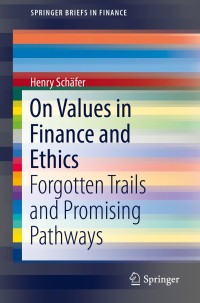Question
You have mean-variance preferences of the form U = 2 . Moreover, if you have $20, you are indifferent between a lottery that pays you
You have mean-variance preferences of the form U = 2 . Moreover, if you have $20, you are indifferent between a lottery that pays you $80 with probability 0.2, and $10 otherwise, and a lottery that pays $1000 with probability 0.1 and zero otherwise. Today, you receive your first paycheck of $35,000, and you consider saving roughly half of it, or $12,000. Your bank offers Certificate of Deposits (CDs) that pay 5%, and are insured by the FDIC (that is, they are risk free). Otherwise, Avanguard offers you an Exchange Traded Fund (ETF) that tracks with minimal error (assume zero) the SP500 index. The average return of the SP 500 index over the last 20 years has been 7%, and its volatility has been 20%. Answer the following questions:
1. What is your coefficient of risk-aversion ?
2. Sketch the assets and the Capital Allocation Line (CAL) in the standarddeviation/expected return space.
3. What is your optimal portfolio? Describe both the weights of the optimal portfolio, as well as their interpretation in terms of securities trading.
4. Suppose that you also consider a third option, which is a Bond ETF with an expected return of 6% and volatility of 10%. Assume that the stockbond correlation is 0.5.
(a) What is the Minimum Variance Portfolio of risky assets (that is, the MVP between the two ETFs)?
(b) What is the correlation between the MVP and the S&P500?
(c) Sketch the three assets and draw the Capital Allocation Line (CAL) in the standard-deviation/expected return space.
(d) At the tangency portfolio, what security are you shorting, if any?
Step by Step Solution
There are 3 Steps involved in it
Step: 1

Get Instant Access to Expert-Tailored Solutions
See step-by-step solutions with expert insights and AI powered tools for academic success
Step: 2

Step: 3

Ace Your Homework with AI
Get the answers you need in no time with our AI-driven, step-by-step assistance
Get Started


